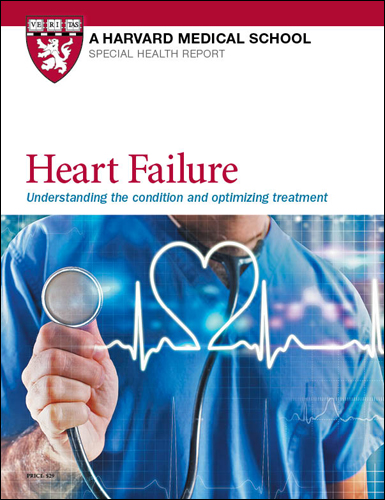Do you really need that heart test or procedure?
Low-value cardiovascular care is common, costly, and in some cases, harmful.
- Reviewed by Deepak L. Bhatt, M.D., M.P.H, Former Editor in Chief, Harvard Heart Letter

If a doctor says you need a stress test or a stent, it's only natural to assume the results will improve your health in some way. Unfortunately, that's not always the case. In some situations, heart-related tests and procedures (see "Common heart tests and procedures") offer no clear benefit. This so-called low-value care isn't just a waste of time and money; it may also promote anxiety and lead to potentially harmful complications.
In fact, up to half of all stress tests done in the United States may be considered "rarely appropriate," according to a scientific statement from the American Heart Association (AHA) published in the March 2022 issue of Circulation: Cardiovascular Quality and Outcomes. What drives this problem — and what can you do about it?
Overuse of certain tests may happen because they're widely available and may provide financial benefits to the health care center, the AHA acknowledges. They may be done in people who don't meet criteria (such as having chest pain or other concerning symptoms) that warrant testing. And sometimes, the results from an initial test are unclear, which can trigger additional, more invasive tests that can increase a person's risk, anxiety, and expense.
Common heart tests and proceduresExercise stress test: Monitors your blood pressure, your heart rate, and your heart's electrical activity during exercise to check for evidence of decreased blood flow to the heart. Echocardiogram: Uses ultrasound to show how well the heart's muscles and valves are working. Coronary artery calcium scan: Measures the amount of calcified plaque in the heart's arteries. Angioplasty: Involves threading a balloon-tipped catheter through a vessel in the leg or arm up to the heart to open a clogged heart artery, usually with a tiny mesh tube (stent) that props the artery open. |
Will it change your care?
"When a physician proposes a test, it's always reasonable to ask how the results might change your treatment," says cardiologist Dr. Jason H. Wasfy, director of cardiology outcomes research at Harvard-affiliated Massachusetts General Hospital and associate professor at Harvard Medical School. This question can trigger a discussion that should help you better understand what's going on and give your doctor a clearer sense of any concerns you may have, he says. Be sure you understand what the results could lead to, not just in terms of medications or procedures, but also any potential follow-up tests. You can also ask if you could get similar information from a different test that's safer (with no radiation, for example) or less costly. Because of skyrocketing medical costs, health insurance companies are increasingly shifting the financial burden onto patients, Dr. Wasfy notes.
As the AHA statement explains, much of the low-value cardiovascular care in this country occurs in people who've already been diagnosed with heart disease. One example is a person who's received a stent or had bypass surgery but gets a yearly stress test despite feeling fine and having no symptoms. For the most part, stress tests are best used to help diagnose people who are likely to develop heart disease — those with several risk factors like high blood pressure, high cholesterol, and diabetes, for example — and who are experiencing bouts of chest pain during physical activity (stable angina).
Another example is a coronary artery calcium (CAC) scan, which Dr. Wasfy describes as "the least useful test imaginable" for a person who already has known coronary artery disease. The appropriate use of a CAC scan is to help clarify a person's risk of coronary artery disease, especially if the person is wondering whether to start taking cholesterol-lowering statins.
As for low-value procedures, an estimated 15% of stent placements are classified as rarely appropriate. That's because for people with stable angina, stents do not prevent heart attacks or death better than medications.
For more information
The Choosing Wisely campaign (www.choosingwisely.org), an initiative from the American Board of Internal Medicine, provides information for patients about a wide range of health tests and procedures, including exercise stress tests, echocardiograms for heart valve disease, and treatments for stable angina (search under "Patient Information"). The write-ups detail why you might not need a test, including its potential risks and complications, and they also clarify and describe situations in which a specific test or procedure probably makes sense.
Image: © andresr/Getty Images
About the Author

Julie Corliss, Executive Editor, Harvard Heart Letter
About the Reviewer

Deepak L. Bhatt, M.D., M.P.H, Former Editor in Chief, Harvard Heart Letter
Disclaimer:
As a service to our readers, Harvard Health Publishing provides access to our library of archived content. Please note the date of last review or update on all articles.
No content on this site, regardless of date, should ever be used as a substitute for direct medical advice from your doctor or other qualified clinician.
















